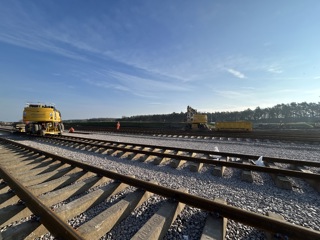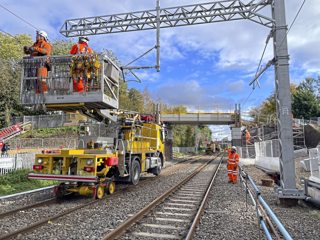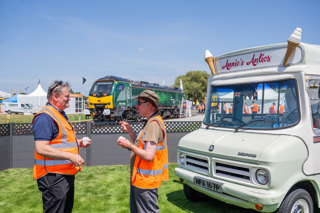Our current minister for rail is unusual for a minister of anything in that he’s not worked his way through the political ranks, but has instead come up through the institutions as a specialist who actually knows his portfolio thanks to a whole career of direct experience.
On his appointment, it proved a welcome change for the industry itself. Most ministers have more party politics in their CVs.
Our current minister for rail is unusual for a minister of anything in that he’s not worked his way through the political ranks, but has instead come up through the institutions as a specialist who actually knows his portfolio thanks to a whole career of direct experience.
On his appointment, it proved a welcome change for the industry itself. Most ministers have more party politics in their CVs.
Lord Hendy has always been outspoken, but hasn't been an outwardly active party political player. The kind of posts he held amounted to a public servant having to work with whichever political flavour was in power.
In our exclusive interview (pages 38-43), we can see he’s not changed much. He’s still the plain-speaking, ‘get-things-done’ manager or leader that he was in his previous non-ministerial roles.
Our interviewer Paul Clifton says this peer of the realm hasn’t acquired any of the airs and graces of either a Minister or a Lord. Nor has he turned into some always on-message party robot, spouting the opaque language we hear so often from party spokespersons.
Even so, it was inevitable that his relationship with party politics would change once he was made a government minister. Previously a crossbench peer in the House of Lords, now he sits for Labour.
And as with Transport Secretary Heidi Alexander, who arrived at her post with a more overtly political CV, we now hear him obviously backing up Labour policy. That’s the necessity of collective responsibility.
But interestingly, the arguments he puts forward sometimes differ to those we might usually hear.
For example, a union boss might argue for nationalisation on principal. It’s what they believe in because it is right in itself.
Hendy, as you can read in our exclusive interview (and the first to a magazine in his ministerial role), argues for public ownership on a more pragmatic level. His support for public ownership is practical and down to earth. It’s about getting things done.
He argues that the rail system is, to paraphrase his already plain-speaking description on the cover of this issue, a bit of a mess.
But he’s also about fixing it. And that’s something which he says continues his work under the last government - but in a more favourable political environment and (he argues) with more urgency.
Nationalisation is a clear party political difference between Labour and the Conservatives, but it’s an aspect of rail reform that we don’t often hear arguments for beyond the principle of public ownership itself.
Recently, we’ve heard more about its indirect impact on what will be the remaining private operations (freight or open access) than on its implications for the majority of the system as a whole.
The view most aired about nationalisation (in the comment pages of this magazine and elsewhere) is that ultimately, it’s not a solution to rail’s problems and won’t make much difference to the end result.
Hendy disagrees. In our interview, he argues for public ownership not so much on principle, but more on its practical desirability.
He is under no illusions that Great British Railways itself is not the answer. If we wait for that to settle in, he says in his own frank way, “we would be waiting a bloody long time for anything to happen”.
But he does think that the environment of a single body can be more conducive to co-operation, instead of opposing forces guided by unintended contractual behaviours. It could sweep away the minutiae that’s been getting in the way, he believes.
Rail’s public ownership bill was Labour’s first manifesto commitment to be made legislation, but was relatively straightforward.
The substantive reform bill is a much bigger beast, but is critical to establishing a set of relationships, responsibilities and rewards conducive to a culture of co-operation. Hendy really believes that can help to improve what he returns to again and again as the challenge facing the rail industry: poor performance.
As Labour’s transport policies gain it a spokesperson, in the shape of a rail minister, are they about to lose the party a member, in the shape of a RAIL columnist?
Christian Wolmar wears his support for Labour on his sleeve, which sometimes leads to criticism.
I believe the editor of an industry title with a mixed readership should try to remain more neutral in party politics, such is the editor’s role in balancing coverage. An outspoken columnist need have no such restraint.
However, Wolmar is no party robot either. He always speaks his own mind, whether it matches Labour policy or not - and often it doesn’t.
Now, he says he’s deciding whether to tear up his membership card or not. Find out what made him so furious.
Login to continue reading
Or register with RAIL to keep up-to-date with the latest news, insight and opinion.



















Login to comment
Comments
No comments have been made yet.